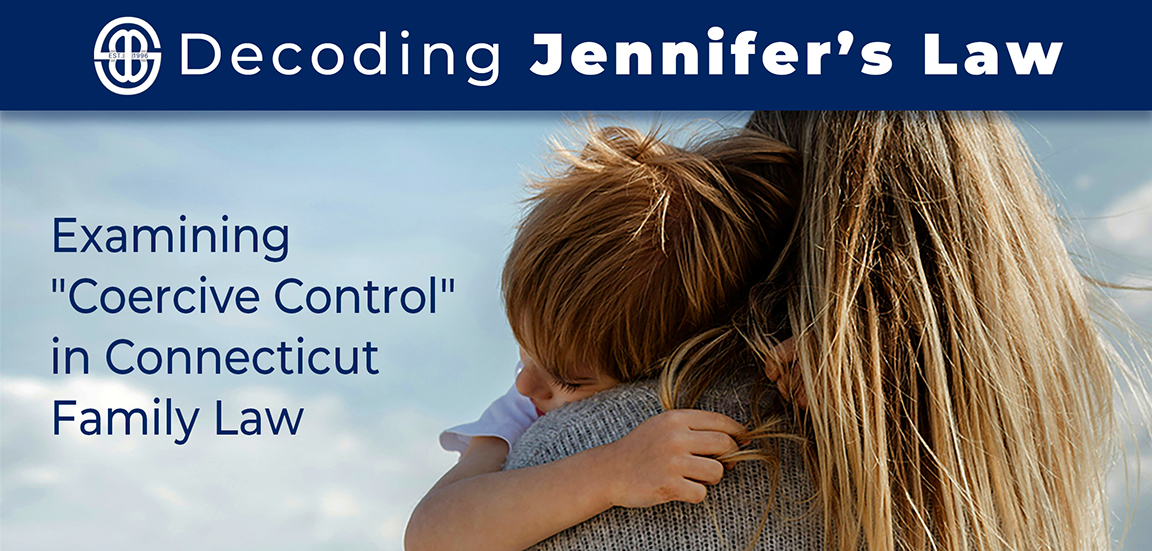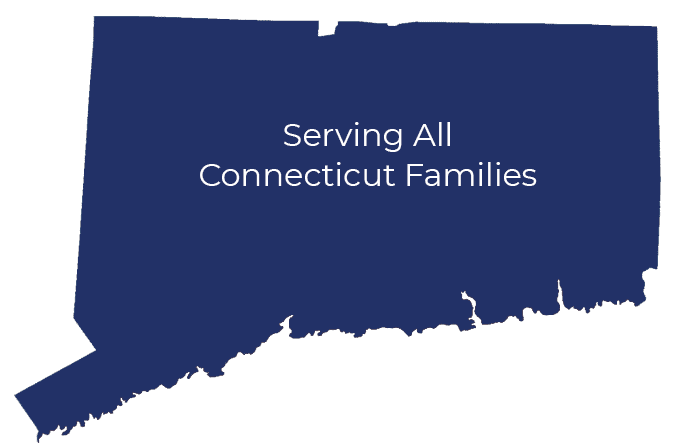In 2021, Connecticut passed a groundbreaking domestic violence law, known as Jennifer’s Law, which redefined domestic violence to include coercive control. Named in honor of two Connecticut victims, Jennifer Dulos and Jennifer Magnano, this law offers significant protections for victims and their families. Historically, victims often needed physical evidence of abuse to seek help, posing a challenge in protecting our clients. However, with the recognition of coercive control, victims now have a broader scope to seek legal recourse as the definition of domestic violence has been expanded to include forms of abuse that can hide in plain sight.
Determining coercive control requires understanding patterns of behavior rather than isolated incidents. Coercive control can involve many different types of behavior that limit an individual’s freedom and free will. This behavior can include financial control, restricting access to money, vehicles, or essential services, effectively trapping victims in abusive situations. Legal professionals play a crucial role in assessing and addressing such forms of abuse within the framework of Jennifer’s Law.
As advocates for a diverse clientele, including both victims and individuals in need of assistance, our goal is to guide everyone towards the healthiest and safest outcomes for all. Understanding the complexities of what coercive control is, we recognize the necessity of not oversimplifying the gravity of coercive control, but rather approaching each case with a nuanced perspective tailored to its unique circumstances.
Key Provisions:
Expanded Definition of Domestic Violence: Jennifer’s Law broadens the definition of domestic violence to encompass coercive control, ensuring victims are protected from various forms of abuse.
Enhanced Protections for Victims: The law grants victims subject to coercive control eligibility for civil restraining orders and establishes criminal penalties for violations of protection orders. It also ensures victims’ rights are upheld in family court proceedings.
Support for Victims: Jennifer’s Law created a grant program to provide free legal assistance to indigent restraining order applicants and facilitates easier access to cash assistance programs for eligible victims.
Tenant Protections: The law provides additional protections for tenants under protection orders, including requirements for landlords to change locks upon request.
Focus on Coercive Control: Coercive control, as defined by the law, encompasses various forms of abusive behavior, such as isolating the victim, controlling finances, and threatening acts of violence.
Jennifer’s Law has had a profound impact on the families of Connecticut, providing crucial support and resources to victims of domestic violence. By recognizing coercive control as a form of abuse and implementing comprehensive protections, the law aims to break the cycle of violence and promote safety and well-being for all residents. At Schoonmaker George, we continue to adapt and advocate for survivors, leveraging the provisions of Jennifer’s Law to secure meaningful protections and resolutions. If you’re grappling with divorce complexities or detecting coercive control dynamics, Schoonmaker George offers compassionate legal support tailored to your needs.
Contact us to learn more.







